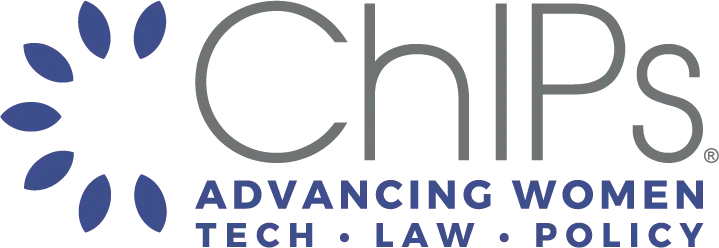ChIPs Member Spotlight: Monica Grewal
Boston Chapter Leader Monica Grewal is an intellectual property partner at WilmerHale and co-chair of the firm’s Post-Grant Proceedings Practice Group. She focuses her practice on patent litigation, prosecution and post-grant proceedings, including inter partes review and covered business method reviews. She has experience in handling significant intellectual property matters for clients including building strategic patent portfolios in a range of technology in the disciplines of electrical, mechanical, biomedical devices and computer engineering. We asked her a few questions about her career, her path to IP law and issues facing women in IP law today.
What did you do prior to getting into law?
I was an engineer at United Technologies Corporation, Hamilton Standard Division, where I was involved in a variety of US space programs, including the advanced testing of the NASA spacesuit and shuttle environmental control systems.
 Tell us about your experiences working with NASA…
Tell us about your experiences working with NASA…
I was seconded to work at Johnson Space Center (JSC) and wound up going to Moscow to work on the joint development of the spacesuit with the Russians for the international space station, which was absolutely exhilarating experience. In 1995, I found myself dangling from the Space Shuttle Atlantis on the tarmac at the Kennedy Space Center, conducting final testing before flying to JSC to take my post at the Mission Control Center for Atlantis’s first rendezvous with Mir. I had the fortune to serve as the lead systems engineer for teams working on extending the capabilities of the spacesuit’s Primary Life Support System, as well as modifying the Shuttle’s carbon dioxide removal system for the MIR missions.
What motivated your career change from engineering to IP law?
My constant curiosity eventually led me in a new direction. Inspired by engineering colleagues who were exploring the burgeoning field of patent law, I attended an open house for the University of Connecticut School of Law. I found it fascinating and ended up enrolling, going to law school at night while continuing to work as an engineer. My first job in the field of law came with a surprise offer from the legal department at Pratt & Whitney Jet Engines. Aware of the narrowing horizons of the US space program due to funding constraints imposed on NASA after the initial space shuttle mission to MIR, I joined Pratt as a patent agent and transitioned to the role of patent attorney upon completion of my law degree. My law career continued at boutique IP firms in Boston and Chicago. I eventually settled in Boston and started an IP practice at a small general practice firm while my husband, now a professor in bioengineering at Northeastern University, finished his post-doctoral work. I joined Hale and Dorr (now WilmerHale) in Boston in 2004, keen to apply my analytical skill set in the IP litigation arena.
What do you think the biggest challenges are facing women in IP law today?
A woman in IP law faces a unique set of challenges when it comes to navigating her path and taking her seat at the table. We, as women, are confronted with an underlying lack of diversity in the legal profession compounded by the fact that STEM fields remain predominantly male. I am encouraged by the numerous programs and organizations focused on making STEM fields accessible to girls and motivating them to take part in these exciting areas of learning. I’ve also seen great strides in understanding and addressing diversity in the legal profession and believe that things will continue to improve.
What do you think is the most important thing women in IP law can do to support each other and advance each other’s careers?
I dedicate significant effort to fostering the next generation of attorneys and encourage others to do the same. At WilmerHale, I mentor the associates with an engineering background as they learn the practice of IP law. Being approachable and available is difficult with a busy schedule, but making time for mentorship and sponsorship is incredibly important to the advancement of the profession. From serving on WilmerHale’s Diversity Committee and being a founding member of the PTAB Bar Association and the Boston Chapter of ChIPs to my former position as president of the Board of Governors of the Boston Patents Law Association, I have been steadfast in my engagement in the industry and have found those efforts have paid off in spades as well as personally recharging my batteries if you may.
